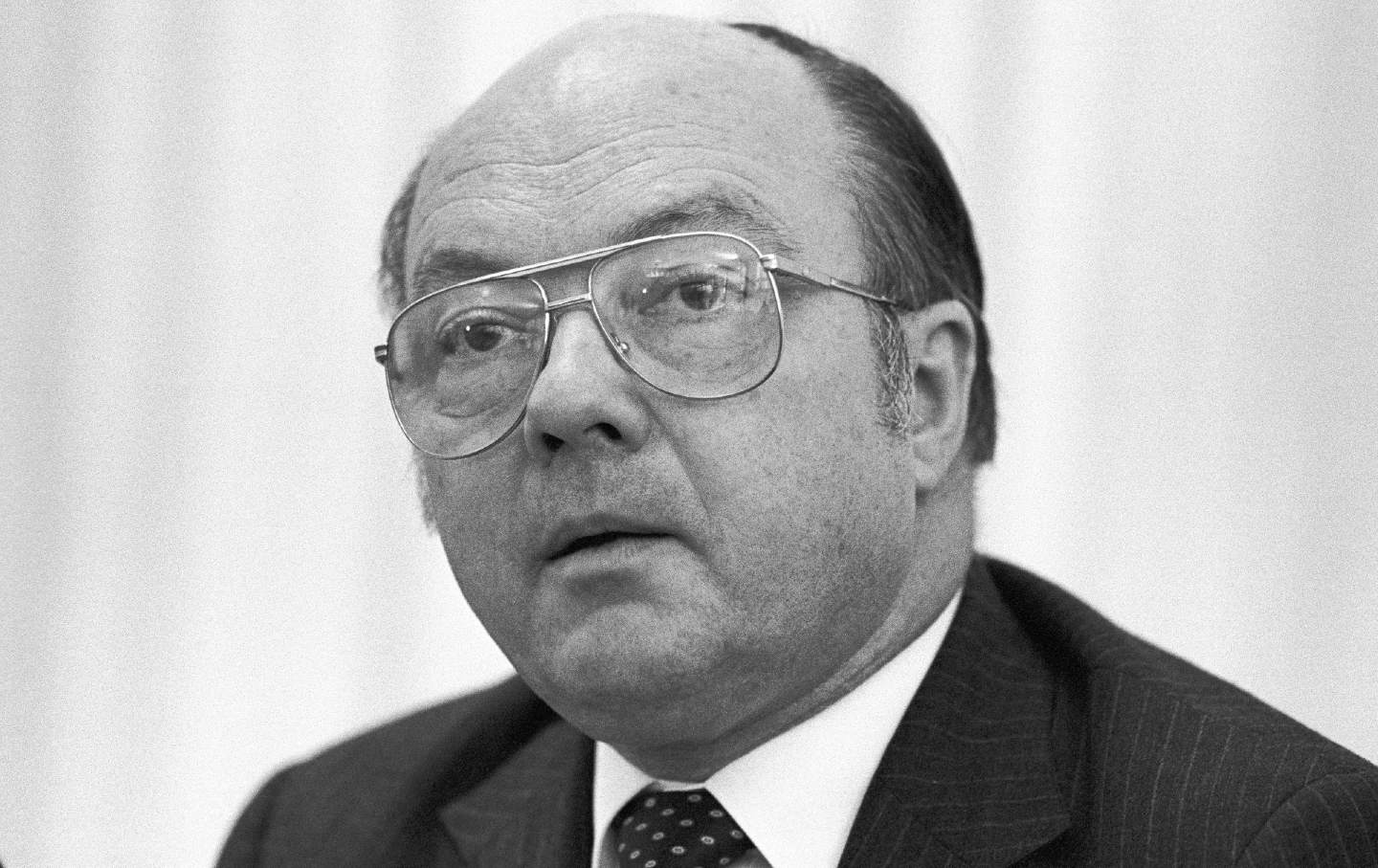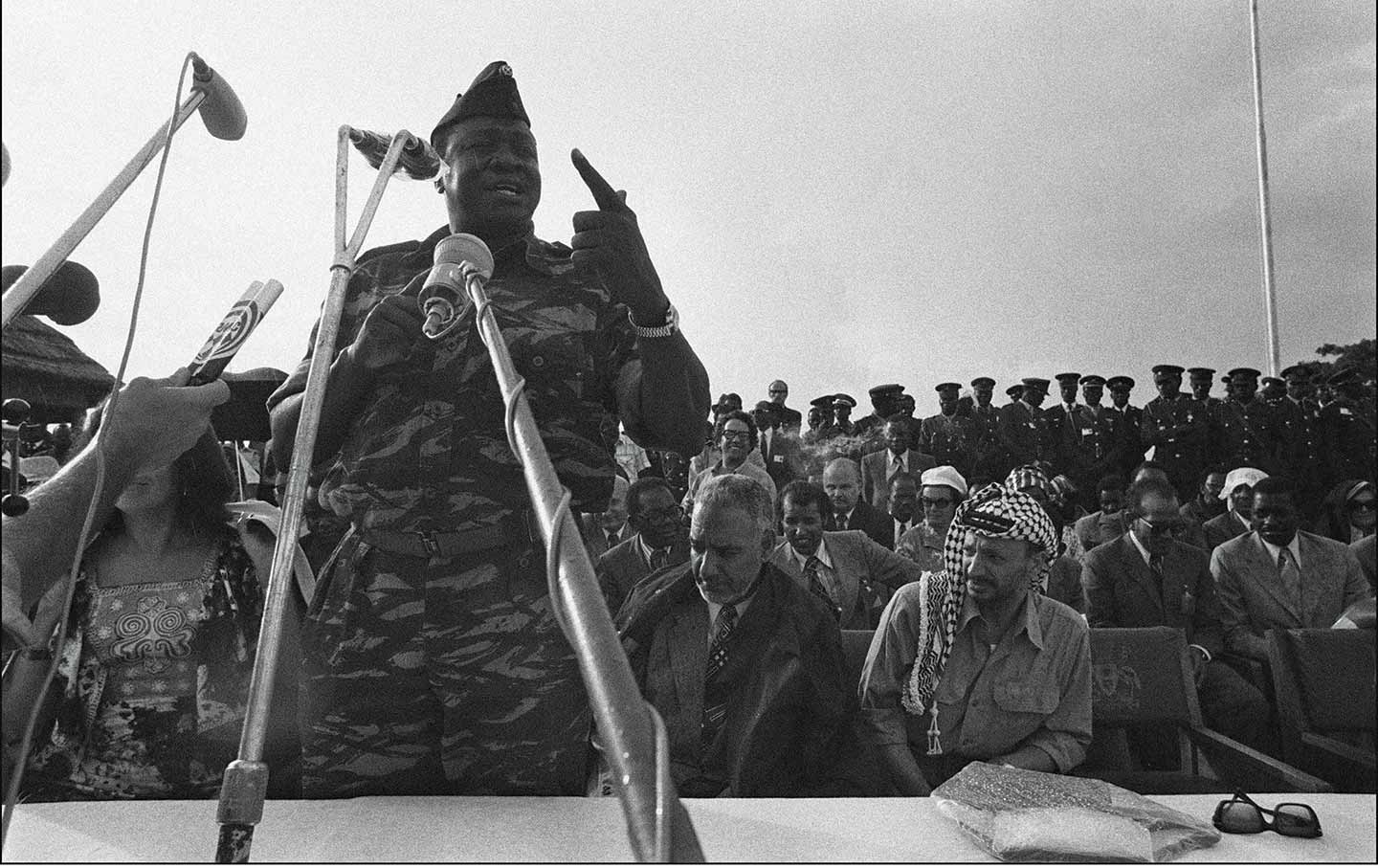How Former Ambassador Jack Matlock Corrects the Record on American Foreign Policy
Matlock, now 95 years old, offers a classic example of why our leaders would benefit greatly from more wisdom and less intelligence.

In the decades since the end of the Cold War, this country has suffered through a series of foreign policy debacles. First and foremost, there was the invasion of Iraq, surely the worst folly since Vietnam. And then there were the trillions of dollars, lives and decades wasted in the war in Afghanistan and an unending and self-perpetuating Global War on Terror, which has generated more terrorists than it eliminated. The utter failure to deal with catastrophic climate change. Now the horror in Gaza and the devastation of Ukraine at the second anniversary of what has turned into a brutal war of attrition. The list could go on.
The tragedy of American foreign policy is that the leaders and national security managers who led us into these debacles or helped sell them to the public remain in charge of American foreign policy and are guardians of the conventional wisdom. Instead of listening to those who got it right, we seem condemned to follow those who got it wrong over and over again.
That is why the voice of 95-year-old Jack Matlock is so important—and deserves far more attention. Ambassador Matlock, a career foreign service officer, served as ambassador to the USSR under Reagan and George H.W. Bush, working with them to negotiate the end of the Cold War. Today, he cuts through the propaganda and the hype and offers a compelling map of the roads not taken.
The end of the Cold War, Matlock notes, came from diplomatic negotiations—not from the defeat and collapse of the Soviet Union. Indeed, the subsequent breakup of the Soviet Union was seen by the Bush administration as a setback for US policy. Reagan and Bush negotiated the end of the Soviet empire, and the unification of Germany. They reassured Soviet leader Gorbachev that if he agreed not to intervene in Eastern Europe, the United States (read NATO) would not take advantage.
While the US worked to gain independence for the Baltic Republics, the Bush administration thought Georgia and Ukraine would fare better in a voluntary association with the Soviet Union. President Bush proclaimed a goal of a “Europe whole and free.” Gorbachev spoke of “our common European home,” and welcomed representatives of Eastern European governments that had thrown out their communist rulers.
Matlock traveled to Kiev with Bush when the president appealed to the Ukrainians to join into a voluntary federation with the Soviet Union and warned them against “suicidal nationalism.” Then the Soviet Union disintegrated.
When the US subsequently moved, aggressively under Clinton, to extend NATO at a time when Russia was weak and near anarchy, Matlock warned against it. And as Matlock notes, so too did almost all the senior people involved in negotiating the end of the Cold War, plus heavyweights from (the dove) George Kennan to (the hard-liner) Paul Nitze.
Testifying before the Senate Foreign Relations Committee in 1997, Matlock warned that taking in new members to NATO “may well go down in history as the most profound strategic blunder.… [I]t could well encourage a chain of events that could produce the most serious security threat to this nation since the Soviet Union collapsed.”
Instead, the US added 15 counties (including Finland this year) to NATO, spanning from the Baltics in the North to Romania in the South. Then George W. Bush unilaterally terminated the Anti-Ballistic Missile Treaty and began building bases and deploying ABM missiles—which could easily be converted to offensive weapons—to Russia’s borders.
Putin objected but was ignored. He made it repeatedly clear that adding Georgia and Ukraine to NATO would be unacceptable. Again, he was ignored. The US proceeded to arm and train the Ukrainian military; NATO announced that Ukraine would become part of NATO eventually; and, as we’ve just learned, the CIA integrated itself into Ukrainian intelligence and military preparations. The Minsk Agreements that called for a federated Ukraine not part of NATO—signed off on by the EU, the US, Ukraine and Russia—were never pursued, used, as Angela Merkel admitted, as a cover to give Ukraine’s military time to build up.
The Russian invasion and courageous Ukrainian resistance triggered a strengthening of NATO and massive military aid, with the Biden administration claiming that democracies everywhere will be imperiled if Russia wins. Now the war has settled into a grinding war of attrition, with Ukraine savaged, millions of its people displaced, its economy ruined. The US administration, RAND corporation analysts tell us, “is more tolerant of Ukrainian horizontal escalation against high-value Russian targets in Crimea and Russia proper.” Or, in the words of Biden’s Undersecretary of State Victoria Nuland (previously Dick Cheney’s point person on Iraq), there will be “nasty surprises” for the Russians.
No wonder former Ambassador Matlock fears that we are closer to a nuclear exchange now than we were in the Cuban missile crisis.
Looking back at the years of folly since the end of the Cold War, Matlock recalled a 1989 Christmas Eve meeting with the deputy foreign minister of the Soviet Union. He told Matlock that “we have given the Brezhnev Doctrine to you with our compliments. Consider it a Christmas gift.”
The Brezhnev Doctrine, Matlock explains, was grounded on the belief that socialism was the inevitable stage of human development. In the wake of the Soviet invasion to put down revolts in Hungary in 1956 and Czechoslovakia in 1968, the Soviet Union essentially asserted the right and the duty to defend socialist countries from threats whether internal or external.
At the end of the Cold War, Matlock was present when President Bush and Gorbachev declared the Cold War over. Gorbachev pledged that the Soviet Union would not intervene in Eastern Europe to prevent change. When a revolt erupted against the communist government in Romania in early December, Gorbachev kept his word.
Popular
“swipe left below to view more authors”Swipe →Ironically, that same December, the US invaded Panama to remove its President Manuel Noriega. That occasioned the Russian quip to Matlock on Christmas Eve.
What neither foresaw was that the United States would go on to declare itself the indispensable nation. Francis Fukuyama, a State Department official, was hailed for declaring “Western liberal democracy”—the American version of democratic capitalism—the “final form of human government” at the “end of history.” Successive administrations—from Clinton to Biden—asserted not only the right and the duty to defend democracy from threats internal or external but also the right to use its prowess to bring the blessings of democracy to those deprived of it. The US has embraced its version of the Brezhnev Doctrine that we once condemned, and we are paying a terrible price for it.
At 95, Jack Matlock offers a much-needed corrective to the constricted consensus that passes for our foreign policy debate. He was present at the great turning point—and is aware of the roads not taken. He offers a classic example of why our leaders would benefit greatly from more wisdom and less intelligence.
Disobey authoritarians, support The Nation
Over the past year you’ve read Nation writers like Elie Mystal, Kaveh Akbar, John Nichols, Joan Walsh, Bryce Covert, Dave Zirin, Jeet Heer, Michael T. Klare, Katha Pollitt, Amy Littlefield, Gregg Gonsalves, and Sasha Abramsky take on the Trump family’s corruption, set the record straight about Robert F. Kennedy Jr.’s catastrophic Make America Healthy Again movement, survey the fallout and human cost of the DOGE wrecking ball, anticipate the Supreme Court’s dangerous antidemocratic rulings, and amplify successful tactics of resistance on the streets and in Congress.
We publish these stories because when members of our communities are being abducted, household debt is climbing, and AI data centers are causing water and electricity shortages, we have a duty as journalists to do all we can to inform the public.
In 2026, our aim is to do more than ever before—but we need your support to make that happen.
Through December 31, a generous donor will match all donations up to $75,000. That means that your contribution will be doubled, dollar for dollar. If we hit the full match, we’ll be starting 2026 with $150,000 to invest in the stories that impact real people’s lives—the kinds of stories that billionaire-owned, corporate-backed outlets aren’t covering.
With your support, our team will publish major stories that the president and his allies won’t want you to read. We’ll cover the emerging military-tech industrial complex and matters of war, peace, and surveillance, as well as the affordability crisis, hunger, housing, healthcare, the environment, attacks on reproductive rights, and much more. At the same time, we’ll imagine alternatives to Trumpian rule and uplift efforts to create a better world, here and now.
While your gift has twice the impact, I’m asking you to support The Nation with a donation today. You’ll empower the journalists, editors, and fact-checkers best equipped to hold this authoritarian administration to account.
I hope you won’t miss this moment—donate to The Nation today.
Onward,
Katrina vanden Heuvel
Editor and publisher, The Nation
More from The Nation

Mahmood Mamdani’s Uganda Mahmood Mamdani’s Uganda
In his new book Slow Poison, the accomplished anthropologist revisits the Idi Amin and Yoweri Museveni years.

The US Is Looking More Like Putin’s Russia Every Day The US Is Looking More Like Putin’s Russia Every Day
We may already be on a superhighway to the sort of class- and race-stratified autocracy that it took Russia so many years to become after the Soviet Union collapsed.

Israel Wants to Destroy My Family's Way of Life. We'll Never Give In. Israel Wants to Destroy My Family's Way of Life. We'll Never Give In.
My family's olive trees have stood in Gaza for decades. Despite genocide, drought, pollution, toxic mines, uprooting, bulldozing, and burning, they're still here—and so are we.

Trump’s National Security Strategy and the Big Con Trump’s National Security Strategy and the Big Con
Sense, nonsense, and lunacy.

Does Russian Feminism Have a Future? Does Russian Feminism Have a Future?
A Russian feminist reflects on Julia Ioffe’s history of modern Russia.

Ukraine’s War on Its Unions Ukraine’s War on Its Unions
Since the start of the war, the Ukrainian government has been cracking down harder on unions and workers’ rights. But slowly, the public mood is shifting.


